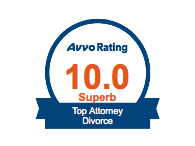In Massachusetts, child support is determined by the Massachusetts Child Support Guidelines (updated in August of 2021). The Guidelines calculate the presumptive amount of child support based on the gross earnings of each parent, along with credits for a parent’s contributions to medical/dental/vision insurance, child-care costs, and support paid for other children not covered by the order at issue. Child support can continue until a child’s 23rd birthday in Massachusetts, making child support modification cases very common.
Child support depends on the court’s order for physical custody (i.e., parenting time) of the child. A parent who has primary physical custody of a child is entitled to child support. In a shared physical custody scenario, the parent who earns greater gross income pays child support to the parent who earns lesser income under the Guidelines.
The recent Supreme Judicial Court’s Cavanagh v. Cavanagh case has implications for child support. Popovitch Law LLC helps clients navigate this complex and changing legal landscape.
On October 4, 2021 the new child support guidelines become effective.
Key changes:
- 2021 Child Support Guidelines Expand Child Support to first $400,000 in Combined Income.
- Under the 2021 Guidelines, there is generous cost sharing for child care:
-
- Reasonable child care costs of up to $355 per week, per child for the children covered by the child support order and due to gainful employment of either parent are shared by the parents in proportion to their share of combined available income. To determine the amount of child care costs to be shared by the parents, the guidelines worksheet requires the input of information regarding the number of children for whom child care is being paid and the total cost of the child care paid per week.
- Clarification of interplay between Child Support and Alimony
-
- The 2021 Guidelines indicate that Massachusetts judges can , in their discretion, order alimony in cases where the child support guidelines apply:
-
-
- Depending upon the circumstances of the case, such as the total amount of support that would be available to each household, it may be appropriate to calculate alimony first, and in other circumstances it may be appropriate to calculate child support first.
- The Task Force directly cites the recent decision in Calvin C. v. Amelia A. (2021), in which the Massachusetts Appeals Court held that judges may order alimony prior to calculating child support.
-
College Costs: The new Guidelines also included a presumptive “cap” for parents’ obligation to contribute to their children’s college expenses, with the cap set for each parent at 50% of the annual cost of room, board, tuition and fees at UMass Amherst.
Popovitch Law LLC has experience calculating and presenting Massachusetts Child Support Guideline calculations considering:
- Overtime/Second Jobs
- Self-Employed Parent [concern that income is not reported]
- High Wage Earners
- Underemployment or Unemployment [fighting for “Attribution of Income.”]
- Unreported Income [“Imputation of Income”].
Attorney Popovitch has significant experience regarding:
- Deviations in Child Support (Motions for and Against)
- Proving an increase/decrease in income in child support cases
- Determining Inconsistency between the amount of the existing order and the amount that would result from the application of the guidelines.
- Material change of circumstances warranting a Child Support Modification
- Modifying orders for the payment of college expenses
- Hidden Assets – Attorney Popovitch identifies and traces hidden income through a forensic approach and works and has ample experience working with Expert Witnesses to determine income for child support purposes.
- Enforcement of a Child Support Order i.e. Contempt Action
Concurrent Alimony and Child Support Orders
In Calvin C. v. Amelia A., the Appeals Court explained the framework for ordering simultaneous child support and alimony in cases where parties earn combined income of less than $250,000 in straightforward terms:
“[W]e agree that calculating alimony first usually necessitates using the parties’ adjusted, post alimony incomes when calculating child support to avoid running afoul of G. L. c. 208, § 53(c)(2), this principle typically applies in cases where one spouse is the sole payor of both alimony and child support. …. In cases where one spouse pays both child support and alimony, and the parties’ combined income is less than $250,000 … the alimony payment should be treated as income available to the recipient (rather than to the payor) for purposes of calculating child support.”




